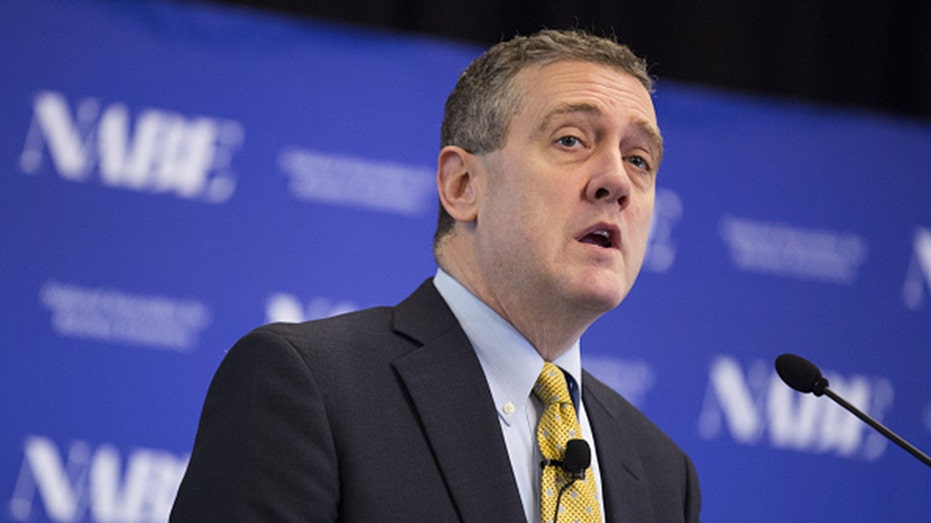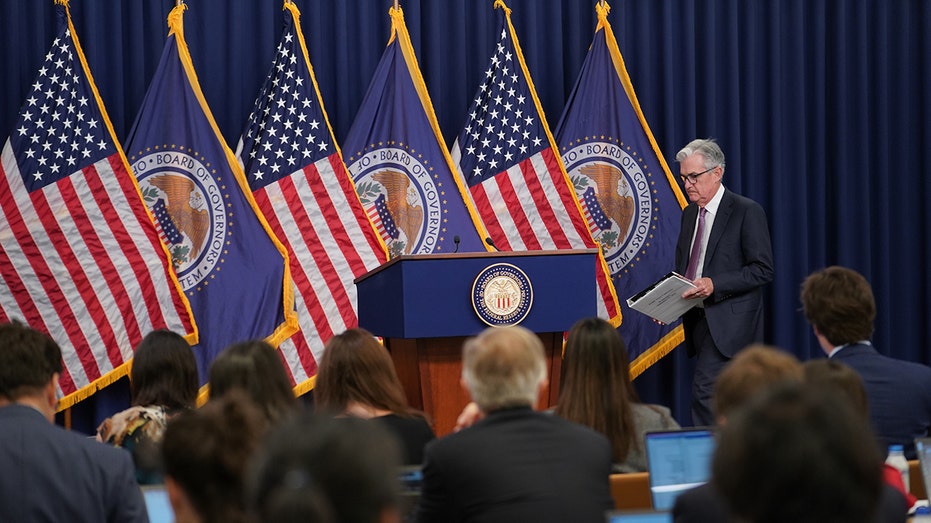President of St. Louis Fed pushes for steeper rate hike amid fears of 1970s-style inflation spiral
Steeper rate increase could give policymakers boost on inflation fight, James Bullard says
Federal Reserve will most likely need to keep rates higher: Zook
Chairman and CIO at CAZ Investments Christopher Zook provides insight on the state of the economy and investing on "Mornings with Maria."
St. Louis Federal Reserve President James Bullard on Wednesday pushed for a more rapid pace of interest rate increases amid signs that inflation is broadening throughout the U.S. economy.
Bullard, who is not currently a voting member of the policy-setting Federal Open Market Committee, said that a steeper rate increase now could give policymakers a better chance to fight inflation that is still about three times higher than the pre-pandemic average.
"It has become popular to say, ‘Let’s slow down and feel our way to where we need to be.’ We still haven’t gotten to the point where the committee put the so-called terminal rate," he said during an interview on CNBC. "Get to that level and then feel your way around and see what you need to do. You’ll know when you’re there when the next move could be up or down."
INFLATION STILL OUTSTRIPPING WAGES IN MOST US CITIES

James Bullard, president and CEO of the Federal Reserve Bank of St. Louis, speaks during the National Association of Business Economics' Economic Policy Conference in Washington, D.C., on Feb. 26, 2018. (Joshua Roberts / Bloomberg via Getty Images / Getty Images)
The Fed last month voted to raise its benchmark interest rate another quarter percentage point to a range of 4.5% to 4.75% and signaled that a "couple more" increases are on the table this year. That followed a half-point increase at a December meeting and four consecutive 75-basis-point moves. The central bank typically moves the federal funds rate in quarter-point increments.
But a slew of hotter-than-expected economic data reports, including the blowout January jobs report and a disappointing inflation report that pointed to the pervasiveness of high consumer prices, has raised the specter of a higher peak rate or more aggressive rate hikes.
The Labor Department reported last week that the consumer price index rose 0.5% in January, the most in three months. The annual inflation rate also surprised to the upside at 6.4%.
Bullard said the risk of policymakers moving too slowly to raise rates is that inflation remains uncomfortably high or rebounds, mimicking a phenemoenon that ravaged the economy in the 1970s.

Jerome Powell, chairman of the U.S. Federal Reserve, arrives at a news conference in Washington, D.C., on Sept. 21, 2022. (Sarah Silbiger / Bloomberg via Getty Images / Getty Images)
"If inflation continues to come down, I think we’ll be fine," Bullard said. "Our risk now is inflation doesn’t come down and reaccelerates, and then what do you do? We are going to have to react, and if inflation doesn’t start to come down, you know, you risk this replay of the 1970s ... and you don’t want to get into that. Let’s be sharp now, let’s get inflation under control in 2023."
Minutes released from the Fed's Jan. 31-Feb. 1 meeting on Wednesday show that a number of policymakers are worried an "insufficiently restrictive" policy stance could "halt recent progress in moderating inflationary pressures" and keep consumer prices elevated for a longer period.
CLICK HERE TO READ MORE ON FOX BUSINESS
"Participants observed that a restrictive policy stance would need to be maintained until the incoming data provided confidence that inflation was on a sustained downward path to 2%, which was likely to take some time," the minutes said.





















